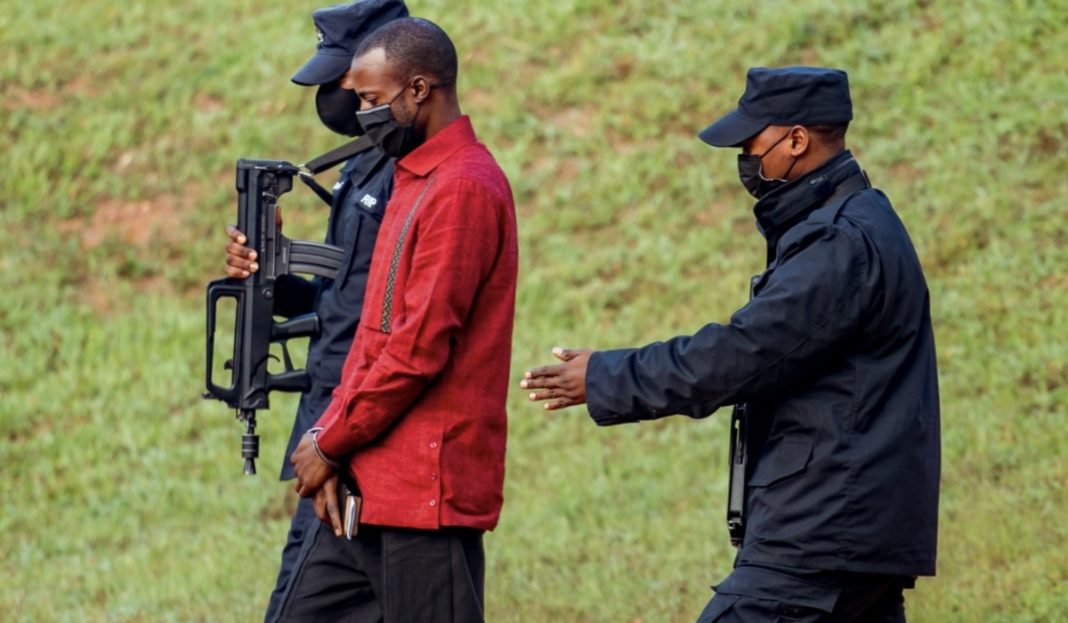Renowned fashion designer Moses Turahirwa, the founder of Moshions, is once again facing legal troubles linked to drug abuse charges.
This is not his first encounter with the law for similar offenses, having been convicted in 2024 and appealed previously.
The Kicukiro Primary Court is set to deliver a bail verdict for Turahirwa on Friday, May 9, following Turahirwa’s appearance before the court on Tuesday, when prosecutors laid out charges against him for drug use, storage, and transportation of illegal substances.
According to the prosecution, Turahirwa’s arrest followed an ongoing investigation and information provided by members of the community about his alleged drug use.
He was allegedly found in possession of 13 packets of cannabis, and results from the Rwanda Forensic Institute indicated 164 mg of drugs in his body. The average person has about 0.20 mg.
The prosecution also stated that upon his arrest, Turahirwa admitted to obtaining the drugs from Kenya, hence the charge of transportation into play. During the bail hearing, prosecutors asked for his remand, citing ongoing investigations into jis alleged drug trafficking and emphasizing that he was not a first-time offender.
A look back at Turahirwa’s previous conviction
The prosecution said that the fashionista was not a first-time offender, referencing a case from 2023, where Turahirwa was prosecuted for drug use and forgery.
Back then, he was initially remanded and later granted bail on appeal. However, the Nyarugenge Intermediate Court, on December 20, 2024, convicted him on both charges, sentencing him to three years in prison and a fine of Rwf2 million.
Turahirwa appealed the decision to the High Court, which has not yet scheduled a hearing.
Some may wonder why he is not currently behind bars despite the 2024 conviction. The answer lies in the law.
Why was he still out after being convicted?
According to the 2019 law on criminal procedure, “upholding the status quo of the suspect during the period of appeal and before the appellate court rules on the case, the suspect continues to be in the same state as the court ordered, until the court, at the appeal level, decides otherwise.”
This explains why Turahirwa remained free until his recent arrest—he had been granted bail, and under the law, his status remains unchanged until the High Court appeal is heard.
Turahirwa admits to drug use
During Tuesday’s bail hearing, Turahirwa pleaded guilty to drug use but disputed the seized amount.
He claimed he only possessed less than 2 mg of hybrid cannabis from Kenya, which he said he voluntarily handed over to the police upon his arrest. He requested bail, arguing that he had begun therapy and was on a sobriety journey.
Turahirwa emphasized that he had an upcoming appointment with his therapist in the United States, adding that his drug levels had significantly decreased since his initial arrest.
What if the appeal upholds the conviction?
Should the High Court uphold the lower court’s sentence for Turahirwa, that could have implications for his new charges. The laws are clear on repeat offenses.
The law on offences and penalties in general, Article 52 on recidivism and its punishment, states: “For felonies, recidivism occurs at any time when a person reoffends after conviction in a final judgment.”
“For misdemeanours,” the law reads, “recidivism occurs when a person convicted by final judgment reoffends within five years of completion of the sentence or after its prescription. Every recidivist receives the maximum penalty provided by law and such penalty may be doubled.”
Potential penalties if found guilty
Meanwhile, according to the law, Turahirwa is still presumed innocent in both cases, the previous one in appeal and the current one ongoing until proven he’s guilty.
However, if Turahirwa is convicted for all three charges, drug use, storage, and transportation, he might face severe penalties since there are few mitigating circumstances.
If found guilty of drug use, he is liable for imprisonment for a term of one to two years one year or community service.
On the crimes of storing and transporting narcotics, he faces life imprisonment and a fine of Rwf20-30 million, for severe narcotics.
For simple narcotics, he could be sentenced to imprisonment for a term of seven to 10 years, plus a fine between Rwf5-10 million.



